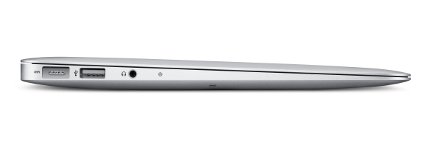It's no secret that Apple isn't exactly a fan of Flash, so the company's decision to stop shipping its new computers with the plugin preinstalled for "security" reasons didn't come as much of a surprise. Personal and professional vendettas aside, though, the latest tests have shown that there may have been some major practical benefits to the move.
During its review of the new 11in MacBook Air, Ars Technica found that the battery was only able to survive a disappointing 4 hours of casual web surfing. Suspecting that something might be amiss, the reviewer removed Flash, and with the exact same websites open, managed to easily pass the six-hour mark.
Anandtech found similar results, with battery life on the 13in MacBook dropping by more than 50 per cent.

The cause of the problem was the Flash-based adverts that appear on many sites, causing the processor to work a lot harder than it would otherwise have to. With the banners replaced by static versions, battery life improved by a huge amount. Obviously more involved content will require more CPU cycles, but such a drastic reduction in endurance doesn't speak well to the efficiency of either Flash or those banner ads.
It's obvious that a lot of Flash content will put strain on a CPU, but this is one of the few empirical tests showing the impact that it can have on laptop run times. Obviously a lot of web content still relies on the plugin, but it does raise the question of whether the "full web experience" is worth a two-hour drop in battery life, especially on lightweight or mobile devices.













